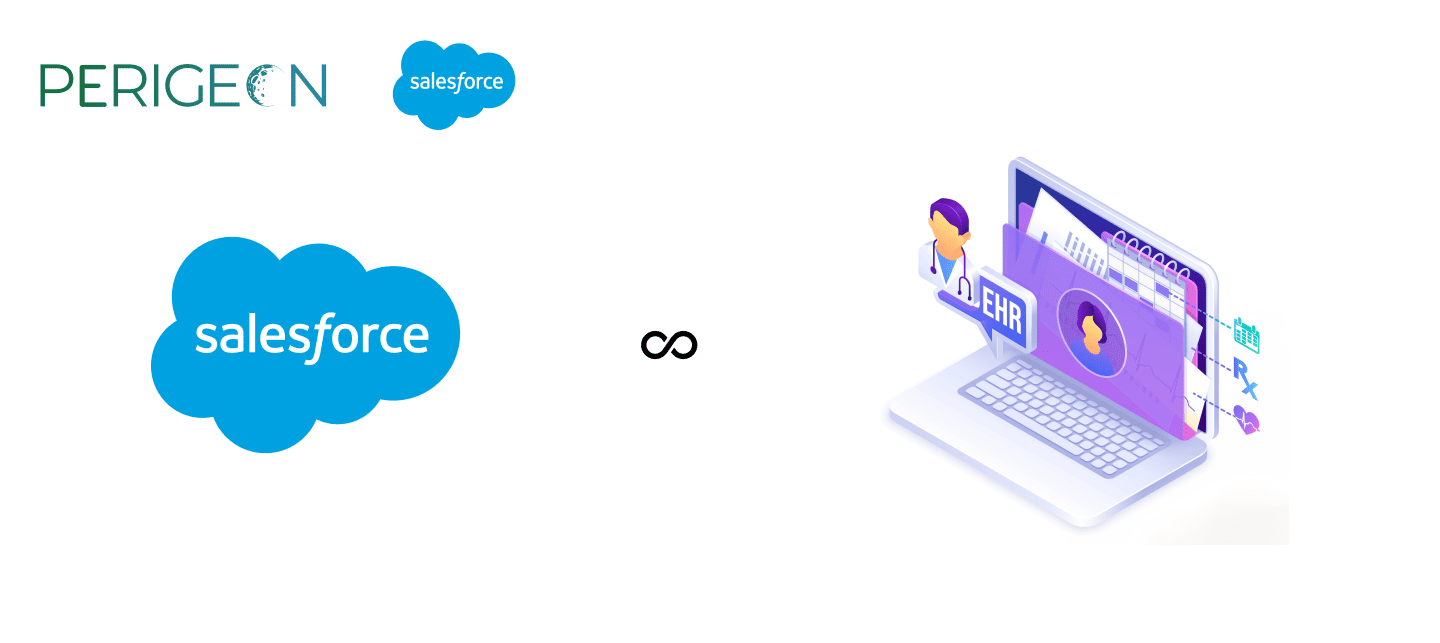In today’s data-driven healthcare landscape, seamless integration between Salesforce and Electronic Health Records (EHR) systems is revolutionizing patient care and operational efficiency. By combining Salesforce’s powerful CRM capabilities with the data-rich environment of EHR systems, healthcare providers can streamline workflows, improve patient engagement, and gain actionable insights.
This blog explores how Salesforce integrates with popular EHR systems and why it’s a game-changer for healthcare organizations.
Why Integrate Salesforce with EHR Systems?
1. Centralized Patient Data
Salesforce integrates with EHR systems to provide a 360° view of patient information, including medical history, appointments, and prescriptions.
2. Enhanced Patient Engagement
EHR integration enables personalized communication and outreach, improving patient satisfaction and adherence to treatment plans.
3. Streamlined Workflows
Automating data sharing between Salesforce and EHR systems reduces administrative tasks, freeing up time for patient care.
4. Real-Time Insights
Combine Salesforce analytics with EHR data to gain insights into patient trends, treatment outcomes, and operational metrics.
5. Improved Compliance
Ensure data security and adherence to regulations like HIPAA with Salesforce’s robust compliance features.
Popular EHR Systems and Their Salesforce Integrations
1. Epic
- Integration Capabilities: Sync patient demographics, clinical notes, and appointment details.
- Use Case: Automate patient engagement workflows based on EHR data.
2. Cerner
- Integration Capabilities: Share lab results, prescriptions, and health histories between systems.
- Use Case: Enhance care coordination among providers and staff.
3. Allscripts
- Integration Capabilities: Connect appointment scheduling and patient health tracking.
- Use Case: Provide personalized treatment plans using combined CRM and EHR data.
4. Athenahealth
- Integration Capabilities: Sync billing, scheduling, and clinical data.
- Use Case: Automate reminders for follow-ups and reduce no-show rates.
5. Meditech
- Integration Capabilities: Centralize patient records and clinical outcomes.
- Use Case: Enable seamless data access for multi-location providers.
How Salesforce with EHR Integration Benefits Healthcare Providers
- Care Team Collaboration: Provide care teams with unified access to patient data for improved coordination.
- Patient Outreach: Automate appointment reminders, follow-ups, and educational content.
- Operational Efficiency: Eliminate redundant data entry and reduce errors with real-time data syncing.
- Personalized Care: Leverage combined Salesforce and EHR data to create customized care plans.
- Analytics-Driven Decisions: Use integrated data to identify trends and optimize treatment strategies.
How Perigeon Can Help
At Perigeon, we specialize in Salesforce-EHR integrations tailored to your organization’s needs. Here’s what we offer:
- Seamless integration with popular EHR systems like Epic, Cerner, and Athenahealth.
- Custom workflows to enhance patient engagement and care delivery.
- Compliance with healthcare regulations, including HIPAA.
- Training and support to ensure your team maximizes the benefits of integration.
Conclusion
Integrating Salesforce with popular EHR systems empowers healthcare organizations to deliver better care, improve patient engagement, and streamline operations. By leveraging the combined power of these platforms, you can stay ahead in today’s competitive healthcare landscape.
Ready to integrate Salesforce with your EHR system? Contact Perigeon today to get started!





